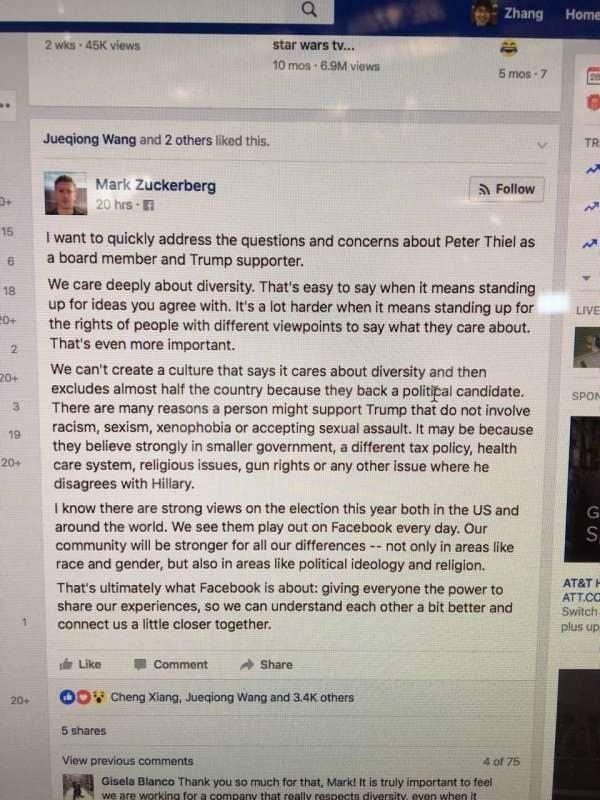Prepare yourself: Your Facebook filter bubble might pop a few times in the coming weeks. In a Friday blog post, the company said it plans to allow more contentious content in your timelines and will now consider the newsworthiness of graphic words and images before censoring them.
"In the weeks ahead, we’re going to begin allowing more items that people find newsworthy, significant, or important to the public interest — even if they might otherwise violate our standards," Joel Kaplan, Facebook's vice president for global public policy, and Justin Osofsky, the company's vice president for global operations and media partnerships wrote. "... Our intent is to allow more images and stories without posing safety risks or showing graphic images to minors and others who do not want to see them."
According to the Wall Street Journal, Facebook's announcement follows intense internal debates over Donald Trump's posts to the social network — particularly ones advocating for bans on all Muslim immigration. Some Facebook staffers argued that some of Republican presidential candidate's comments violate the company's rules about hate speech. But CEO Mark Zuckerberg determined that they should stay, telling Facebook employees that while Trump's rhetoric qualified as hate speech, removing it could have far-reaching consequences. The Journal reports that several Muslim content moderators threatened to quit over the decision, saying that Zuckerberg was allowing Trump an exception to rules meant to protect users.
Zuckerberg is no stranger to controversy this election. He recently took to Facebook to defend venture capitalist and Facebook board member Peter Thiel's support of Donald Trump's campaign, saying that the company could not simultaneously value diversity and censor the views of a major party candidate and his supporters.

Facebook as a whole is struggling to promote the perception of itself as an impartial platform, both with classically controversial content and contemporary political opinions in an especially polarizing election. Gizmodo interviewed former Facebook workers who alleged that they regularly suppressed conservative news and viewpoints. And a Norwegian writer recently posted the Pulitzer Prize-winning photo "Napalm Girl," a linchpin of Vietnam War coverage, only to have his account suspended by Facebook's human content moderators. Facebook did not apologize, though it did reinstate the post.
